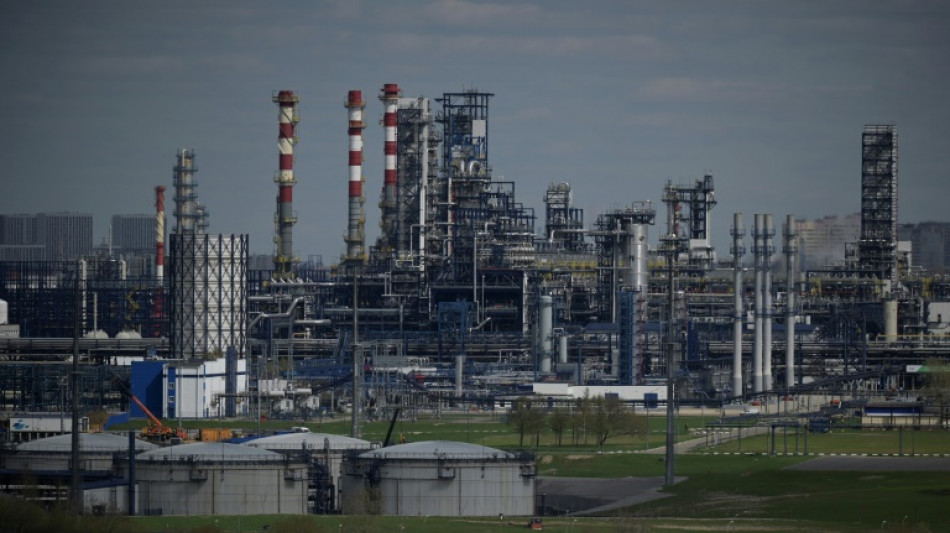
SCS
0.0050

The European Union's executive unveiled Wednesday plans for a gradual ban on Russian oil imports as part of a raft of new sanctions to punish Moscow for invading Ukraine.
The proposed measures include moves against Russia's biggest bank and the targeting of Patriarch Kirill, the head of the Russian Orthodox Church.
If approved, the oil ban would be the EU's toughest move yet against Russia's strategic energy sector that helps the Kremlin finance its war, but will still not touch its huge gas exports.
The embargo is part of the bloc's sixth sanction package, and would be phased-in over the rest of the year to help countries adapt.
The EU is the biggest consumer of Russia's crude oil. Last year Russia supplied the bloc's 27 members with 30 percent of their crude and 15 percent of their petroleum products.
"We now propose a ban on Russian oil. This will be a complete import ban on all Russian oil, seaborne and pipeline, crude and refined," European Commission chief Ursula von der Leyen told a session of the European Parliament in Strasbourg.
But, she added, "we will make sure that we phase out Russian oil in an orderly fashion", with crude banned gradually over the next six months and refined fuels by the end of the year.
Ambassadors from the 27 European Union countries met on Wednesday to assess her plan, and it will need unanimous approval before going into effect.
The proposal also asked that Hungary and Slovakia, both hugely dependent on Russian oil, be given an extra year to meet the ban, a document seen by AFP showed.
In a statement sent to AFP, Hungary said it saw no guarantee for its energy security in the proposed ban.
Asked if this meant Hungary outrightly rejected the EU's proposal, the government press office did not immediately answer.
- 'War supporter' -
Von der Leyen also said her proposal would deny Sberbank, Russia's biggest bank, access to SWIFT, the global banking communications system.
By hitting Sberbank and two other banks, "we hit banks that are systemically critical to the Russian financial system and Putin's ability to wage destruction," she said.
Her proposal also singled out Patriarch Kirill, calling him "a long-time ally of President Vladimir Putin who has become one of the most prominent supporters" of the war.
The new list mainly includes Russian military personnel, but also the wife, daughter and son of Kremlin spokesman Dmitry Peskov.
Von der Leyen said the high-ranking military officers included those "who committed war crimes in Bucha and who are responsible for the inhuman siege of the city of Mariupol".
"This sends another important signal to all perpetrators of the Kremlin's war: We know who you are, and you will be held accountable," von der Leyen said.
The EU also proposed banning more Russian broadcasters from the airwaves in Europe.
The bloc already banned media outlets RT and Sputnik in March and pressured tech giants to remove them from their platforms.
B.Gopalan--DT